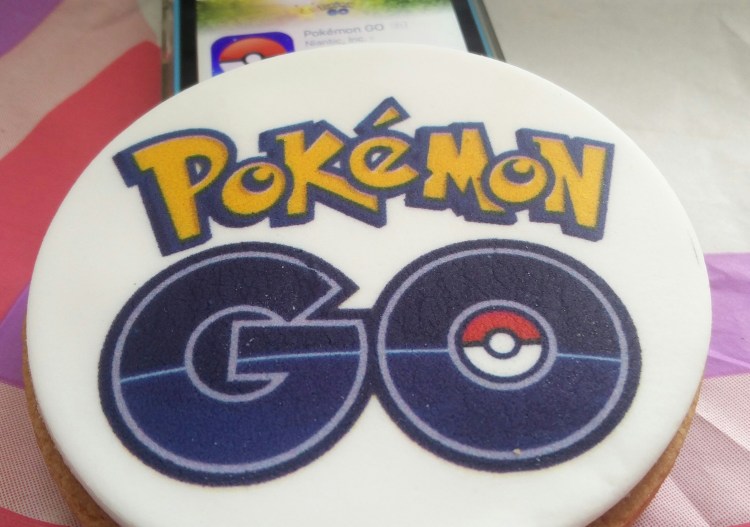One is a mobile game app. One is a discount shopping site. For all their differences, Pokémon Go and Groupon may share a similar fate: a rocketlike takeoff that burns through fuel without a plan to keep the company aloft.
Pokémon Go and Groupon share other similarities. Both are location-based. Both popularized then-unexplored tech opportunities. Both are built on questionable business models: Apple and Google take a hefty rake of Pokémon Go’s in-app purchases, while Groupon’s daily deals were money losers for local businesses if they couldn’t convert discount shoppers into repeat customers.
It’s “Icarus” refashioned with glass, silicon, and a touchscreen interface. And, for every entrepreneur who doesn’t heed the modern-day parable, it’s destined to be retold again and again.
How the mighty fall
Nintendo, with tech partner Niantic, launched Pokémon Go on July 6. Within days, it had more daily active users than Twitter. In weeks, many consumers’ first taste of augmented reality became history’s most popular mobile game.
But Pokémon Go peaked as quickly as it rose. Within two months, it was in decline. Engagement fell, while international debuts masked the bleed of 10 million daily active users in established countries. And — just ask Myspace — very few companies buck a downward trend after it takes hold.
Groupon’s history reveals eerie parallels. After Groupon launched in 2008, it was hailed as the fastest-growing company in history. Business owners joined in droves, and consumers across America logged on, snagging deals like rare Pokémon. Now, Groupon is shedding jobs, paring back internationally, and struggling to win back investors. Consumers got over the flash-sale craze as quickly as they got into it.
Learn from the falling
Pokémon’s fate fits a common pattern in the game world, as Nintendo itself experienced earlier this year with Miitomo. But with its AR component breaking the mobile mold, Pokémon Go could have been different. Could have — but three critical mistakes have sent it careening toward Groupon’s grave:
1. It was unprepared for viral growth. Entrepreneurs dream of that meteoric rise — but it’s more of a nightmare, truth be told. Every time Pokémon Go releases to a new region, the game becomes unstable because of the server load. With so much backend work to do, Nintendo has spent its post-release days fixing bugs — there are still lots of them — rather than iterating on the product. It’s a mistake Groupon also made and readily admits to.
2. It didn’t seek social salvation fast enough. Be honest: Pokémon Go gets boring. Because it lacks a discernible product road map, once you’ve “caught ’em all,” your only option is to catch ’em again. People got tired of the game, lost patience with the glitches, and quit.
Social interaction — the original purpose of games — builds community, which keeps users coming back. That’s why social networks enjoy longer shelf lives than gamification apps like Foursquare. To its credit, Pokémon Go has made a good start of this, but it’ll quickly lose luster without further love from Nintendo.
3. Pokémon Go is all about the game — to a fault.Pokémon Go was a true minimum viable product, released without attention to the app’s commercial and interaction potential. Nintendo should have encouraged developers to create a world beyond Pokémon Go, rather than shutting them down. One-on-one battles, messaging, player meet-ups, and local business partnerships could give the game staying power.
The original product is never enough. You need to create an ecosystem. Google, for instance, started a search engine, then won the hearts of consumers by offering useful, free products to grow its user base and augment its search product.
The falling are not yet the fallen
Is Pokémon Go already dead? It could survive, but the route is rocky.
One important distinction from Groupon is that Pokémon Go enjoys a technological advantage over competitors. Because Groupon’s model was simple, imitators sprang up overnight. Augmented reality, by comparison, is complex. Because Niantic launched the AR game Ingress in 2011, it has a huge lead over competitors when fixing Pokémon Go’s shortcomings.
Pokémon Go established AR’s potential as a platform. If Pokemon can pivot to be less of a game and more of a community, then it has a chance at survival. After its slide in 2011, Groupon tried this by introducing Groupon Goods. The service now makes up more than 50 percent of the company’s revenue, but that hasn’t been nearly enough to return it to its halcyon days.
For Pokémon Go, however, there is perhaps still time — but only if it can iterate quickly enough to recapture its waning user base.
Eden Chen is cofounder of Fishermen Labs, a Los Angeles-based app development agency focused on custom web, mobile app, virtual reality, and augmented reality development, and digital marketing.
VentureBeat's mission is to be a digital town square for technical decision-makers to gain knowledge about transformative enterprise technology and transact. Learn More

